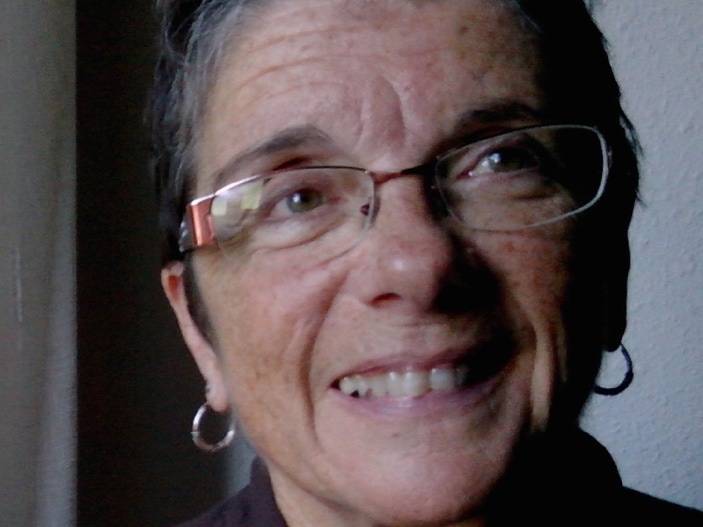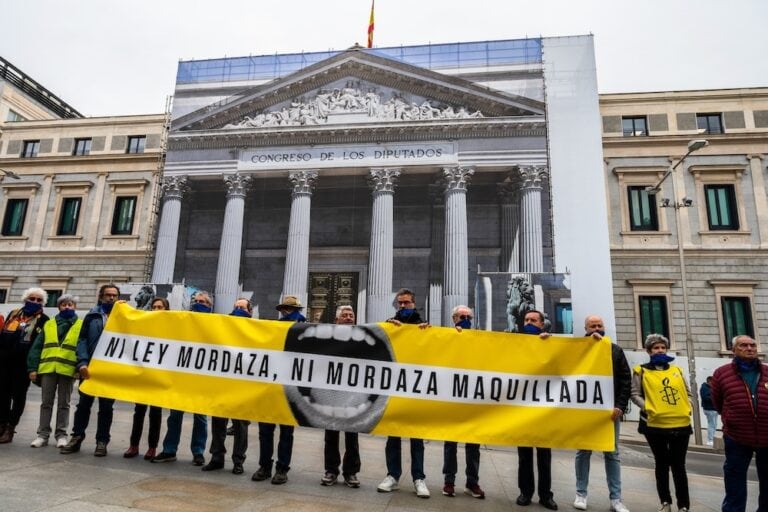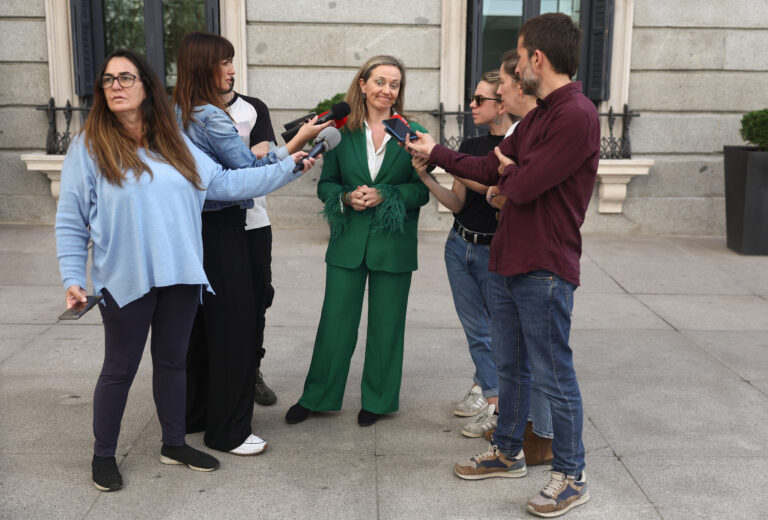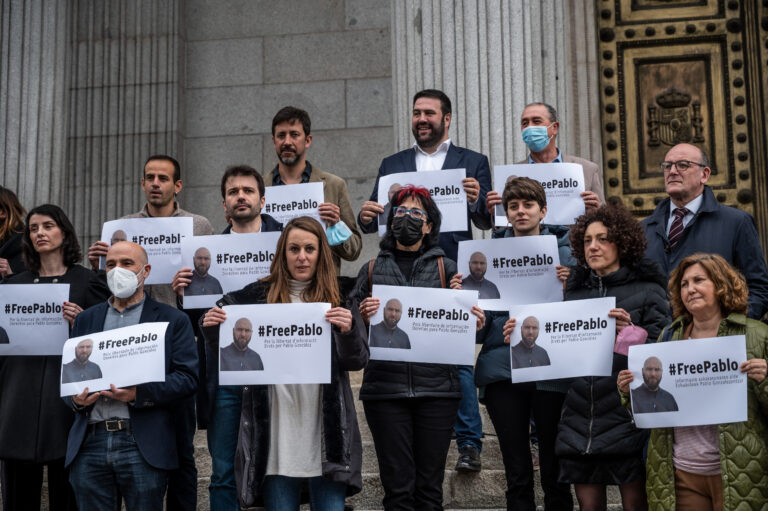Now in her sixties, journalist and activist Teresa Toda is a supporter of peaceful self-determination for the Basque region. One of 30 journalists prosecuted on terrorism-related charges, she was imprisoned in 2007. She now campaigns for free expression and prisoners' rights. Cathal Sheerin, a writer and journalist with a particular interest in human rights in Latin America and Europe, interviewed her for IFEX.
Cathal Sheerin: Tell me about your history as a free expression advocate.
Teresa Toda: All my life I’ve been involved in journalism and activism. During the Franco period, one of my first jobs was actually working for ABC. At that time there was no real free expression in Spain. All newspapers supported the regime, and you tried to be professional, but there were certain subjects you couldn’t touch – like strikes. However, I was also involved in underground, independent journalism. We counteracted the ‘official’ journalism, keeping ourselves informed via clandestine newspapers. When Franco died, there was a flowering of journalism and I became involved in trade unions in Catalyuna. In 1984, Egin [a Basque newspaper] hired me as their Madrid correspondent.
CS: When you began working at Egin, was the conflict between ETA and the Spanish government intensifying?
TT: Yes. In 1989, I was with Josu Muguruza and Iñaki Esnaola [a Basque politician and activist respectively] when fascists shot them in Madrid. To see a friend die with a bullet wound in his neck changes you. Egin brought me back to the Basque Country for my own safety. The violence got worse in the 90s. ETA and the police were killing people; those years are known as ‘the years of lead.’
CS: Journalists also suffered – Egin was shut down by the government in 1998 as part of a crackdown on all manifestations of the Basque independence movement. You were jailed on charges of ‘collaboration’ with ETA [the main evidence against Toda was that she and her editor had interviewed the leader of ETA]. How did that occur?
TT: Egin was the first newspaper to be shut down. They said we financed and collaborated with ETA, which wasn’t true. A lot of those arrested were just promoting self-determination. Our trial began in 2005 at the Special Anti-Terrorist Court in Madrid and it was incredible: the same investigators who arrested us were called upon as experts to evaluate the evidence against us! Two Egin journalists (including me) and eight board members were jailed in 2007. I received 10 years, reduced to 6 in 2009.
CS: How did prison affect you?
TT: It was terrible: two years in prison in Salamanca, then four years in one of Spain’s toughest jails in Cordoba – 860 km away from my family. We were kept in our cells for 20 hours a day, with only 4 hours in the yard. We took all our meals alone in our cells: it was a form of isolation. You couldn’t take part in activities with other prisoners. Your letters were read; your conversations taped. They watched us constantly: that becomes another limit to your freedom of expression. Forming friendships in prison is very important; you learn a lot about how people react to things – to kindness, to anger. You spend your time trying to better yourself, developing your artistic side with very few materials – imagination is very important! Also, you learn to recycle everything – from envelopes to water bottles.
CS: Did you return to activism after your release in November 2013?
TT: I became even more involved in free expression and in fighting for Basque prisoners’ human rights. According to the UN, prisoners should be kept in prisons as close to their families as possible, but that’s not happening here, where there is a policy of dispersal of Basque prisoners [convicted on terrorism-related charges] throughout Spain. You also have a right to take proper care of your health. Being sick in jail is very hard: there are now 10 seriously ill Basque prisoners who are still being kept in harsh conditions very far from their families – they could be given parole or special measures for taking care of their health. There are also prisoners who’ve been in jail for over 24 years: that’s 24 years during which their families have had to travel 2,000 km every week to visit them. Apart from the travel costs, 16 people have died in road accidents on these trips, deaths that wouldn’t have occurred if their loved ones had been closer to home.
CS: Finally, can you comment on the recently introduced, so-called ‘gag law,’ which has been criticised for the draconian restrictions it places on popular protest and free speech?
TT: Yes, it’s the main threat to freedom of expression in Spain. It stems from legislation that they were already applying in the Basque Country – restrictions on demonstrations etc. But the gag law is having a particularly bad impact on photographers – you just can’t take pictures of the police now. There was a case of a young photographer in the Basque Country who was fined around 600 Euros because he took a picture of a women being arrested. You only saw the policeman’s back but that was enough because he was supposedly ‘putting their lives in danger.’ It’s also becoming quite a big deal on the internet too. Nowadays, anyone can say ‘I take offence’ at this or that and they take you to court: that’s already happening quite frequently.
You couldn’t take part in activities with other prisoners. Your letters were read; your conversations taped. They watched us constantly: that becomes another limit to your freedom of expression.Teresa Toda on life in prison



